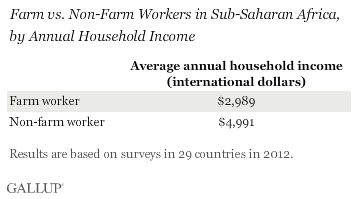Americans Want to Pull Back from World Stage
Nearly half of Americans want to pull out of the world stage.
Source: WSJ
With all that is going on within the boundaries of the United States, it should not come as a complete surprise that American's are not so interested in being a main fixture on the world stage as in years passed (additionally, do we need to be?). There is no more cold war, conflicts in which American forces are used in the past 15 years have been primarily out of self-interest (though America's engagement in the Balkans as well as in Afghanistan was warranted in this author's opinion), and modern warfare has changed across tactics, theaters and goals.
Much like an article I wrote a few weeks back, Americans are in a malaise, a widening economic divide, limits on opportunities, and the growth of China are certainly reasons that could contribute to this thinking. "The Myth of the American Decline" might not be believed by all, but certainly it is compelling enough to warrant a discussion. But, we have to face facts, there is just no global cultural appetite for American hegemony.
Certainly the United States is a one of the most influential global actors, but there is a belief that the nation, internally, is broken and needs fixing. It cannot be coincidental that Americans wish to see a retreat in their nation's global involvement, especially when so many of them want to see change happen inside the borders.
What do you think? Post a comment below, should America pull back its activities globally? if so, how/what/where?
Via WSJ
One in Five African Adults Work on Farms
Gallup released a detailed research report that stated that 1 in 5 sub-Saharan African adults work on farms. This fact has broad implications for international development, GDP, the nations' Current Account and internal growth of industry.
Gallup interviewed 31,000 adults throughout Africa and found that these 20% of African adults are working on farms, causing little to no upward mobility for families of the workers since, by in large, the African workforce is older and less educated. Taking the 20% figure, and extrapolating it to the region's population, it means that 84 million adults are employed by the industry.
In order for the industry to thrive in Africa this 20% population (84 million) will need to grow, but it will need to grow in a more sustainable, future-forward way so as to implement new methods, technology and engage in partnerships to assure that the industry can yield enough to feed the sub-Saharan region, and eventually post a surplus to trade with.
An "out of touch" labor force working on farms means that implementation of modern agricultural methods and technology will lag. These advances would increase crop yields, provide methods to better survive inclement conditions, as well as bear fruit that would become a source of export.
Non-farm workers make early twice as much in a year.
In order for the industry to grow, and sustain itself, it must begin to find ways to compensate its laborers better that begins to march closer to non-farm workers. Currently a farm worker makes about half as much as non-farm workers. This might provide enough purchasing power within the agricultural regions in which they work, but it is probably not enough to sustain growth and development in a way that can change an industry.
There was an interesting positive note: families of farm workers had a higher average number of children within the household. As the sectors' labor force is getting older, an above average amount of young blood entering the work force (maybe entering agriculture) could rejuvenate the industry, force it to adopt more disruptive technologies and force a change from subsistence to surplus farming. This would mean more partnerships with NGOs, industry and governments to ensure that no adverse policies, tariffs or any other impediments would prevent growth.
The Food and Agriculture Organization (FAO) mentioned in a report that investing in the "enhancement of agricultural productivity and engagement of youth, smallholder, and family farmers are among the key priority areas" The FAO have identified that these policies are important to "accelerate agricultural transformation and eradicate hunger in the region."
UPDATE: The Cynicism of the USA; Our Decline and Fall? (Part 1)
Via The Boston Globe
Curious. In this morning's Boston Globe there was an article titled, "Middle class eroding, gap widening in Bristol, R.I." which speaks directly to the issues that were mentioned in yesterday's blog post, "The Cynicism of the USA; Our Decline and Fall? (Part 1)". The article states:
"Like many other places in America, Bristol is increasingly a community of extremes, home to both great wealth and a shrinking middle class as more residents slip closer to poverty. Nearly one of every 10 households in Bristol County uses food stamps, more than double the number just a few years ago, representing one of the largest increases in New England."
Unemployment Rates for Bristol, RI and the Nation.
More than one third of households that are using the available food pantries (located about two miles away from Poppasquash Neck, where a mansion just sold for $5.2MM) have more than one wage-earner.
You can see that Bristol has a seasonal trend with their unemployment rate (blue line, and not surprising, it is a vacation destination), but it is consistently higher than the national average (red line). Note however that the lines are starting to separate indicating a growing inequality.



